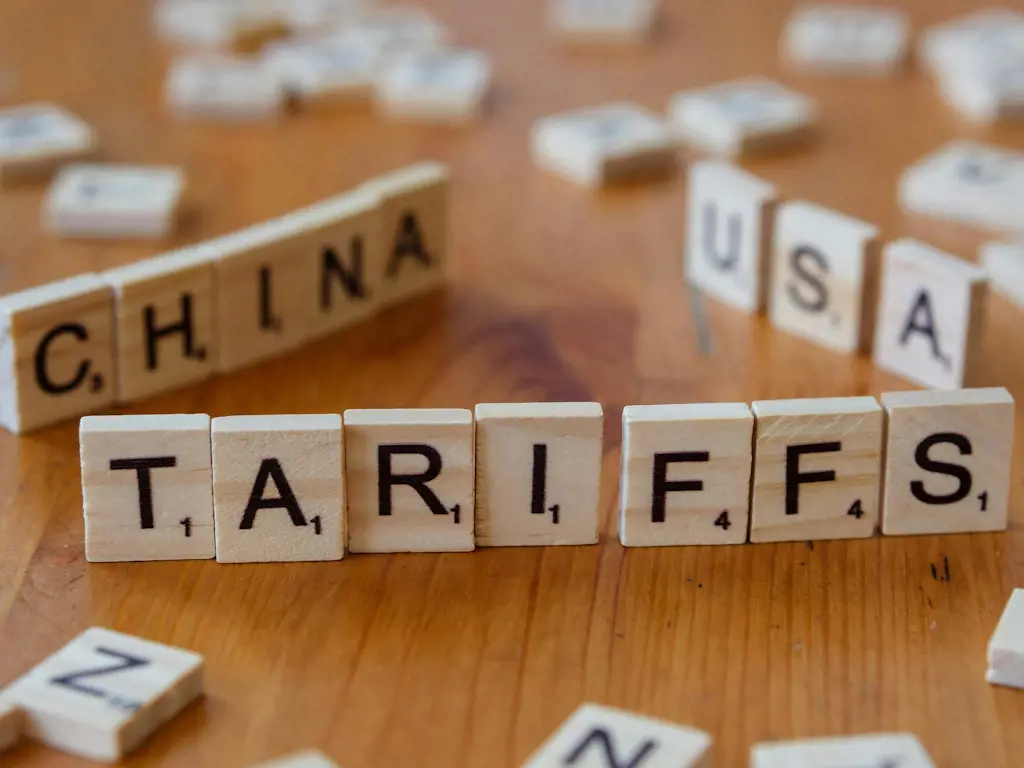
Navigating Tariff Turbulence: What Global Trade Shocks Mean for the UK Automotive Sector
The global automotive sector is entering a new phase of disruption—this time driven not by technology or a pandemic but by geopolitics. In recent weeks, escalating US-China trade tensions and sweeping new tariffs have rippled through markets, creating material consequences for vehicle production, pricing, and investor sentiment.
While the headlines have focused on Washington and Beijing, the UK is firmly in the crosshairs, particularly its automotive and mobility ecosystem.
From Forecast to Freefall: Tariffs Bite Global Sales
The numbers are sobering. S&P Global Mobility has slashed 700,000 vehicles from its 2025 US sales forecast, calling it one of the most considerable single-month changes in its history, on par with the pandemic and the 2008 crash. JD Power forecasts an 8% fall in sales this year and a 5% rise in vehicle prices. Wedbush analysts warn that tariffs could increase average car prices by £4,000 to £12,000, depending on model and segment.
Even US-made vehicles are not immune. “A purely American car is a fairy tale,” Wedbush noted, highlighting the persistent global nature of automotive supply chains. Most US vehicles still rely on imported components and are now subject to heavy duties.
UK Exports in the Firing Line
The impact on the UK is immediate. Roughly 20% (16.9% in 2024 Source SMMT) of British-built cars are exported to the US, and with tariffs on imports now as high as 25%, premium marques like Jaguar Land Rover Mini, Aston Martin, and Bentley are under pressure. JLR has already paused shipments. What will also affect the UK market is the sale of auto parts into the US, which are manufactured for vehicles built in the US or used for servicing vehicles after the new vehicles have been sold.
Further compounding the challenge, China has tightened export controls on rare earth materials—critical for EV batteries and motors—disrupting supply lines just as the UK ramps its electrification strategy. Parts prices are climbing, lead times are stretching, and Tier 1 suppliers demand that OEMS absorb the full cost of tariffs before accepting new orders. Addtionally, Trump is looking to also put tariffs on semi conductors which, much like the period after COVID, could generate a shortage of semiconductors for the automotive industry.
A UK Economy at a Turning Point
These disruptions occur at a delicate moment for the UK economy. Pantheon Macroeconomics recently revised down its 2025 UK GDP forecast from 1.6% to 1.1% (IMF is down to 1.1% as well a fall of -0.5% due to the disruption of the tariffs), citing the knock-on effects of global trade disruption and diminished external demand. Soft data is starting to creak under pressure.
Gfk’s composite consumer confidence index fell to -23 in April—its lowest in 17 months—driven by a sharp decline in sentiment around the economic outlook. While perceptions of personal finances also worsened, the principal purchase intentions balance—the most reliable indicator of real spending—held up relatively well, falling just two points to -19. In short, consumers’ big-ticket purchases are holding up for now, but confidence is sliding fast, pointing to growing downside risks for UK retail spending.
A Capital Markets Moment
Investor sentiment, as echoed in the latest Investors’ Chronicle podcast, is shifting. Tariffs are treated like “slow-motion rate hikes,” tightening financial conditions and squeezing margins across sectors. Global investors are scrutinising where to deploy capital, and the UK has an opportunity to present itself as a credible, stable alternative.
That means accelerating capital markets reform, creating incentives for IP-rich sectors like clean tech and mobility, and presenting a more confident narrative. The UK has the advisory infrastructure, legal strength and geopolitical relevance—but global capital needs clear signals to back British growth.
EV Transition: Disruption and Opportunity
The electric vehicle transition is now far from linear. General Motors remains committed, but others are hedging back toward hybrids or delaying EV expansion. Tesla has reportedly halted Chinese component shipments for the Cybercab, while Hyundai is investing $21 billion to localise US production and insulate itself from tariffs.
For UK mobility startups and investors, the picture is mixed. EV inflation and trade friction complicate scaling, but the retreat of legacy OEMS from aggressive EV bets may open up gaps in software, infrastructure and circular supply chain solutions further.
Conclusion: Strategy Can’t Wait for Certainty
As Grant Thornton aptly put it this week: tariffs may be on hold, but your strategy shouldn’t be. Temporary reprieves do little to mend disrupted supply chains or reverse embedded cost inflation. Even if some tariff policies are softened or delayed, the strategic lesson remains: geopolitical risk is now structural.
For UK automotive leaders, founders and investors, that means:
- Reassessing exposure to export and import volatility
- Investing in supply chain resilience and localisation
- Positioning capital strategies with agility and optionality
- Engaging actively with government policy and trade diplomacy
- Leveraging the UK’s core strengths—regulation, advisory depth, and innovation talent
While the tariff cycle may twist again, those waiting for clarity may be left behind. The winners will be those who adapt early, move decisively, and build with volatility in mind.
Have a great week!
